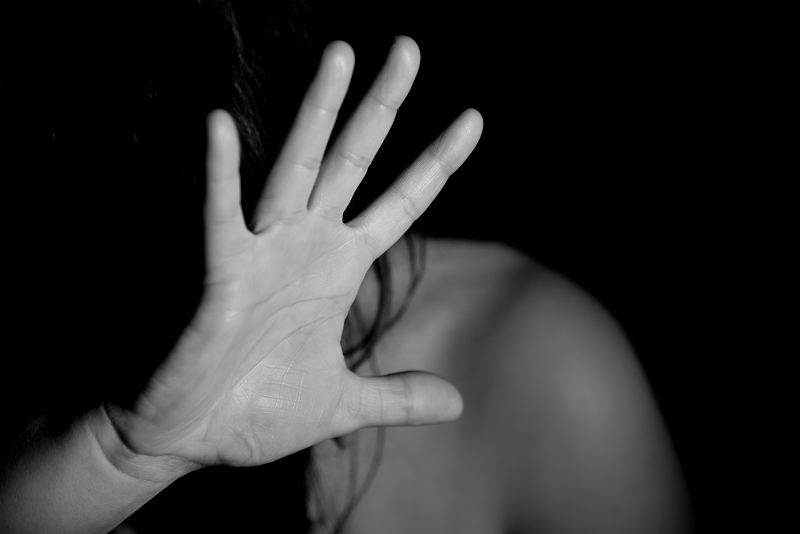By Rachael Pace
Nobody asks to be in an abusive relationship, yet in the United States alone, nearly 20 people are being physically abused every minute.
Partner violence is sadly all too common these days and can have a devastating effect on your mental health and physical wellbeing.
You may believe that the violence and abuse going on in your marriage only affects you, but the truth is that these effects are widespread. They can leave lasting effects on your mental or physical health as well as your children, friends, family, and your spouse.
What is Domestic Abuse?

Many people believe that they are not in an abusive relationship because there is no physical violence involved. But the truth is, domestic abuse is an umbrella term that can mean many different things.
Here are some of the most common forms of abuse.
Being physically violent: Hitting, kicking, throwing things, using force for sexual purposes.
Threatening violence: Using the threat of physical violence to control you.
Verbal abuse: Using demeaning comments or tactics to lower your self-esteem.
Digital abuse: Putting naked photos or your personal information online without your permission.
Financial abuse: The abuser controls all the money, making you feel incapable of taking care of yourself without their help.
Psychological/emotional abuse: Manipulating your emotions for personal gain.
If you are taking a marriage course as a couple to correct poor behavior in your relationship, it can be helpful to underscore which kind of abuse you are dealing with.
Here are some of the effects of abuse in your relationship and how marriage courses may help.
Effects of Physical Violence in a Marriage

Research shows that one in four women and one in seven men have experienced severe physical violence (strangling, beating, burning) at the hands of an intimate partner.
Some effects of violence in a marriage
Loss of work is another common side-effect of physical violence. Statistics show that intimate partner violence accounts for a reported loss of 8.0 million paid work days.
Physical violence can also affect children within the marriage. Research shows that one in 15 children is exposed to intimate partner violence, with 90% of children personally witnessing the violence. Being exposed to parental violence can also trigger violent tendencies in children or cause them to develop anxiety disorders.
Violence in marriage is never okay. While seeking therapy and taking marriage courses are positive steps for an abuser to deal with the issues that are leading them to violence, the abused spouse should evacuate the home in a safe manner to avoid further assault.
Effects of Sexual Violence

Just because you are in a relationship does not mean that your partner is entitled to your body whenever they want it. Yet, research shows that one in four women and one in nine men will experience sexual violence at the hand of an intimate partner.
Sex is about consent, respect, and two people having fun and creating an intimate bond together. It is not an avenue to exert control or abuse.
Some effects of sexual violence in a marriage include:
Broken Trust: Whether you are male or female, sharing your body with your partner is something that requires trust and vulnerability. When someone abuses this trust, it is extremely difficult to recover from.
Unwanted pregnancy: A violent partner may refuse protection in order to take control. It may also be that they dislike the feel of certain birth controls or are trying to get their partner pregnant to trap them in a relationship.
Emotional Trauma: In a healthy marriage, sex is something that relieves stress and builds strong bonds between partners. In a toxic relationship, it is something done to exert control and may result in Post Traumatic Stress Disorder (PTSD).
An online marriage course or sex counselor can help couples come together and talk about the difficulties they are having and why the violent partner is exhibiting sexual control.
If you believe that the abuse you are suffering is beyond the help of a marriage course, seek outside help immediately from trusted friends, family, or police.
Effects of Emotional Abuse
Emotional and verbal abuse are common forms of mental violence. Some abusers may start out as a loving, normal spouse, only to have abusive tendencies occur later in the relationship. Others may use love and attention as a way to trap their spouse in the relationship.
Effects of emotional abuse include:
Gaslighting: An abuser will resort to psychological manipulation in order to make their victim question their own sanity.
Low Self-Esteem: Using verbal abuse, name-calling, and threatening a victim can lower their self-esteem and make them feel like they don’t deserve a better partner than they have.
Feeling like there’s No Way Out: Many victims of emotional abuse feel trapped in their relationship.
Walking on Eggshells: Always trying not to upset a violent partner or feeling like you have no voice in your own home
No privacy: An abuser will often seek to control their victim through digital abuse, have severe jealous tendencies, control the victim’s social habits, often alienating them from close friends and family.
Many victims of emotional abuse may try and seek marriage courses to save their relationship, but when you feel constantly manipulated, controlled, afraid, or powerless, bigger steps must be taken in order to create a healthy atmosphere.
Author Bio: Rachael Pace is a noted writer currently associated with Marriage.com. She provides inspiration, support, and empowerment in the form of her motivational articles and essays. Rachael enjoys studying about today’s evolving forms of loving partnerships and is passionate about writing on all types of romantic connections. She believes that everyone should make room for love in their lives and encourages couples to work on overcoming their challenges together.



